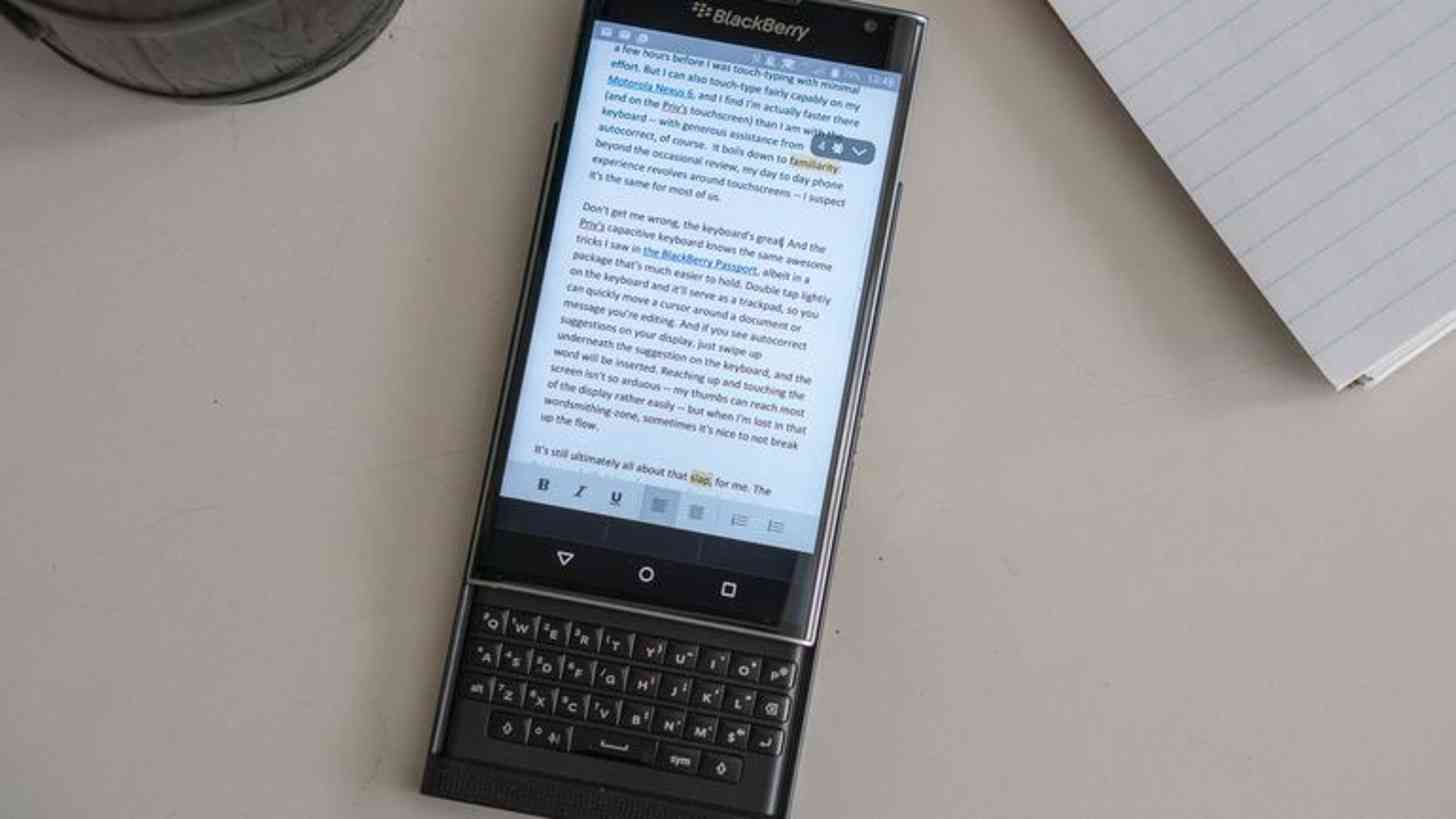
The next couple of weeks are rife with anticipation for the Consumer Electronics Show, also known as CES, which will be going on between January 5-8 in 2017. While CES showcases a number of gadgets and gizmos, it typically includes a number of smartphones in the mix as well. 2017’s event is rumored to feature smartphone demos from LG, Samsung, ASUS, Sony, Huawei, and TCL, the company who has recently entered a long-term licensing agreement with BlackBerry.
BlackBerry’s branding over the past several years has decreased in popularity as other companies and operating systems have been quicker to adapt to new smartphone trends. The Canadian-based OEM attempted to remedy the situation by unveiling the more modern BlackBerry 10 platform back in early 2013, but despite their efforts (both software and hardware-wise – the BlackBerry Passport remains to be one of the most unique smartphones I’ve ever seen) BlackBerry 10 failed to improve BlackBerry’s circumstances.
Miraculously, BlackBerry managed to keep chugging along after BlackBerry 10, though not necessarily in the way that some BlackBerry fans would have liked to see. Instead of developing BlackBerry 10 any further, BlackBerry made the decision to continue manufacturing their own hardware but would operate on the Android platform instead.
One major drawback of becoming an Android manufacturer is that there is a much larger pool of rivals to compete with. However, when you consider BlackBerry’s circumstances, switching to Android ultimately didn’t seem like much of a drawback at all, particularly because BlackBerry had more than just a brand name to offer. Between its iconic physical QWERTY keyboard and dedication to software security (which BlackBerry called the “Achille’s heel” of Android), BlackBerry had a solid way of differentiating itself.
Still, BlackBerry hasn’t really bounced back with Android. Only three phones have been released since the decision, the BlackBerry PRIV, DTEK50, and DTEK60, with one final device (codenamed “Mercury”) to be debuted before BlackBerry finally bows out of the hardware game. Additionally, while PRIV and friends are decent devices, other issues like carrier exclusivity and high price tags for the specs offered hindered their sales.
With TCL at the helm from now on, it’s possible that the BlackBerry brand could see a resurgence of sorts. Going forward, TCL is stated to be in charge of design, manufacturing, and sales of BlackBerry-branded products, as well as taking over customer service for BlackBerry devices and manage global sales and distribution of future BlackBerry products to boot.
At this point, I feel like any real renaissance for the BlackBerry brand is slim; possible, but slim. TCL is also in charge of Alcatel devices and purchased the Palm brand from Hewlett-Packard in early 2015.
What’s interesting is how TCL viewed the Palm brand, a company which had a story very similar to BlackBerry’s. Palm was once a highly valued brand in mobile, eventually coming out with the innovative webOS platform. Once HP purchased the platform, however, things quickly went south and webOS was ultimately abandoned. TCL purchased the brand last year stating that they felt the brand “has value” and that “It was once a very strong brand and there are many fans of this brand around the world, including people at TCL.” Yet, nearly 2 years later, the closest thing TCL has done in regards to anything semi-Palm-related is create the Alcatel One Touch Pixi, which has nothing to do with the old Palm Pixi you may (or may not) remember.
Whether TCL will give BlackBerry the same treatment it has with Palm is a question that can only be answered with time. Considering that the BlackBerry brand still has some momentum (unlike Palm at the time of TCL’s purchase) the optimist in me thinks that’s reason enough to warrant some hope. TCL seems eager to unveil its first official BlackBerry-branded smartphone during CES 2017, so perhaps that’s a clue that TCL really does believe that BlackBerry still has potential.
Readers, what are your thoughts on this transition of power? Do you think that there’s still some hope for the BlackBerry brand after all this time? Let us know your thoughts in the comments below!